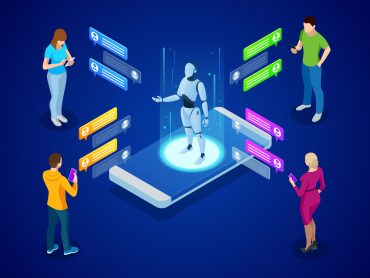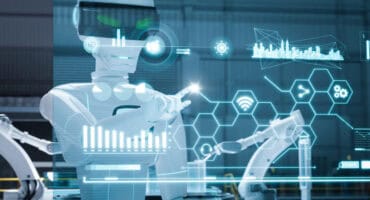
Until quantum computing becomes mainstream, AI and machine learning may offer paths to discovery with existing systems and solutions.
“AI could eat quantum computing’s lunch.” That’s the word from a recent article in MIT Technology Review, which suggests that rapid advances in applying AI to physics and chemistry simulations “have some people questioning whether we will even need quantum computers at all.” The bottom line is quantum computing is tricky, expensive, and still in the experimental stages, while AI-based simulations could operate on current computer architectures.
Edd Gent, author of the Technology Review article, points to a paper published by Matthias Troyer, head of quantum computing for Microsoft, who stated that the theoretical advantages of quantum computers “disappear if you account for the fact that quantum hardware operates orders of magnitude slower than modern computer chips. The difficulty of getting large amounts of classical data in and out of a quantum computer is also a major barrier.”
See also: Quantum Leap: The Immediate Future of Quantum Technology and Its Potential to Reshape Our World
Viable commercial quantum hardware is still not available, but AI is already being implemented in commercial applications. “AI is now being applied to fundamental physics, chemistry, and materials science in a way that suggests quantum computing’s purported home turf might not be so safe after all,” Gent observes.
Notably, “the scale and complexity of quantum systems that can be simulated using AI is advancing rapidly,” according to Giuseppe Carleo, a professor of computational physics at the Swiss Federal Institute of Technology and author of numerous articles on aligning AI with quantum problems, quoted in the article. “Neural-network-based approaches are rapidly becoming the leading technique for modeling materials with strong quantum properties,” he observed. “Meta also recently unveiled an AI model trained on a massive new data set of materials that has jumped to the top of a leaderboard for machine-learning approaches to material discovery.”
Ultimately, future simulations and complex computing problems may be addressed by a combination of both AI and quantum computing, MIT’s Gent reports.
There has also been progress on the commercial front. In September, for example, Microsoft announced Azure Quantum, a compute platform designed “to provide quantum computing across a variety of hardware architectures.” This capability can be delivered via cloud services.
Until quantum becomes a mainstream part of the compute landscape, AI and machine learning may offer paths to discovery with existing systems and solutions. Given the pace of recent advances in AI, “a growing number of researchers are now asking whether AI could solve a substantial chunk of the most interesting problems in chemistry and materials science before large-scale quantum computers become a reality.”
As Carleo put it, “neural-network-based techniques are now the best approach for simulating many of the most complex quantum systems they tested. Machine learning is really taking the lead in many of these problems.”





























